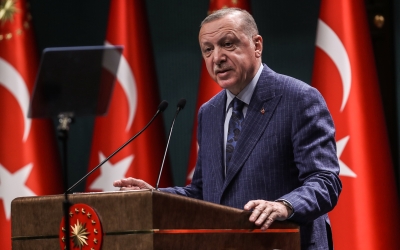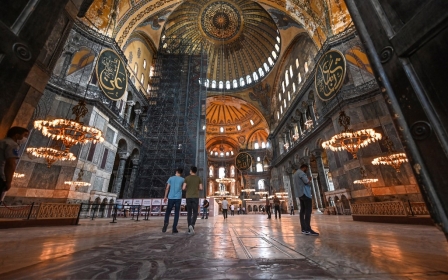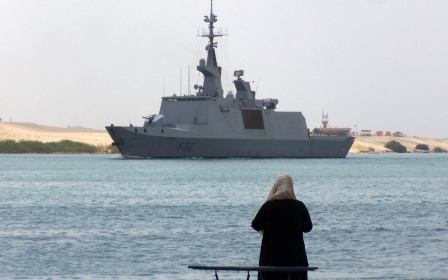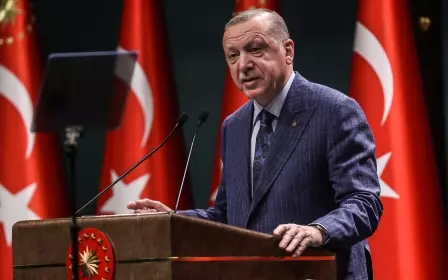Turkey: Opposition channels Halk TV and TELE1 slapped with five-day bans
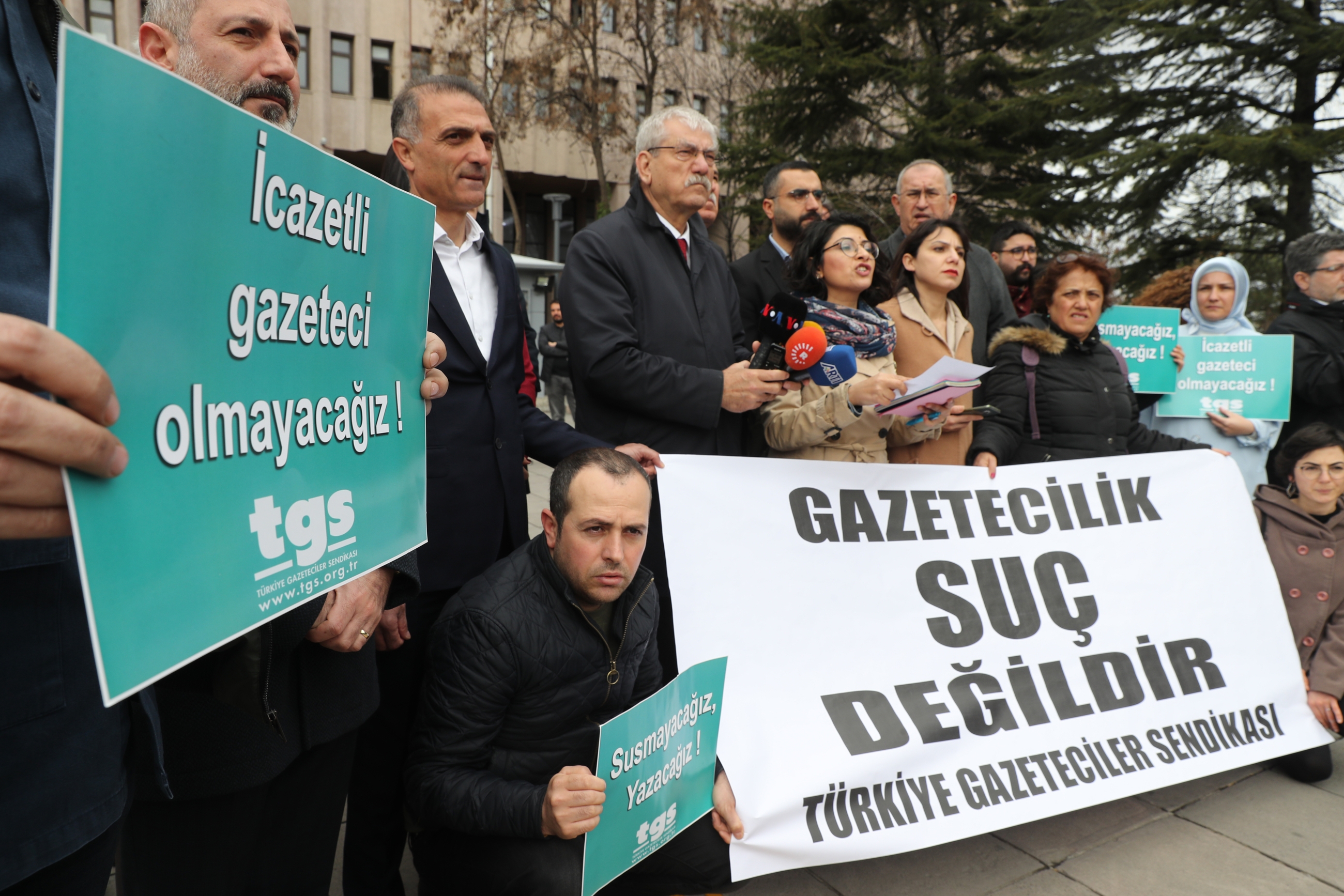
Two television channels have been have handed five-day bans and the threat of permanent suspension in Turkey, in a move slammed by press freedom organisations.
The Radio and Television Supreme Council (RTUK) media watchdog slapped the bans on Halk TV and TELE 1, two television channels that often feature views critical of the government.
Ilhan Tasci, a member of the RTUK, tweeted the decision on Wednesday, saying that viewers tuning into the channels would "only see black screens" for five days.
He added that the two outlets would lose their broadcast licenses entirely if they were penalised again in future.
An investigation was launched into TELE 1 last week after a television host criticised Ottoman Sultan Abdulhamid II, who ruled from 1876 to 1909.
New MEE newsletter: Jerusalem Dispatch
Sign up to get the latest insights and analysis on Israel-Palestine, alongside Turkey Unpacked and other MEE newsletters
Merdan Yanardag accused the former ruler of repressing progressives and reformists in the Ottoman Empire in the 19th century and described him as a “despicable dictator who was a slave to imperialism”.
The legacy of Abdulhamid II is highly controversial in Turkey today. He is lauded by President Recep Tayyip Erdogan and his supporters as a strong pan-Islamic ruler who attempted to salvage the decaying Ottoman Empire, but leftists and secularists denounce his clampdown on the Ottoman parliament and attempts at liberal reforms, as well as for the massacres of Assyrians and Armenians that took place under his rule.
The RTUK decision was heavily criticised by the Committee to Protect Journalists (CPJ).
“The Radio and Television Supreme Council should not function as a censorship tool for the government, and Turkey should learn to tolerate the existence of whatever critical voices are left in the broadcast media,” said CPJ Europe and Central Asia Program coordinator Gulnoza Said.
“Halk TV and TELE1 are two remaining pro-opposition broadcast outlets in a media landscape that has become predominantly pro-government. Their presence is vital for media plurality in Turkey.”
Opposition politicians in Turkey also criticised the move.
Istanbul Mayor Ekrem Imamoglu tweeted that the move was "unacceptable", while IYI party leader Meral Aksener said that real leadership did not mean "banning the free press".
RUTK's decision came on the same day as Erdogan threatened to bring in a law restricting or closing down social media sites such as Twitter, YouTube and Netflix in the country.
Journalists detained
Turkey, sometimes described as the world's worst jailer of journalists by media freedom organisations, has regularly been accused of muzzling critical media.
Six journalists - Baris Terkoglu, Hulya Kilinc, Baris Pehlivan, Murat Agirel, Mehmet Ferhat Celik and Aydin Keser - had been held in detention since March after their outlets revealed photos of a member of Turkey's National Intelligence Organisation (MIT), who was among the first Turkish soldiers killed during military operations in Libya.
The six appeared in court last week, where it was ruled that Terkoglu, Celik and Keser would be released under monitoring, while the others would remain in jail.
Their next hearing is on 9 September.
Pehlivan, editor-in-chief of news portal OdaTV, has continued to publish articles on the OdaTV website, written from his cell in Turkey's notorious Silivri prison.
Middle East Eye delivers independent and unrivalled coverage and analysis of the Middle East, North Africa and beyond. To learn more about republishing this content and the associated fees, please fill out this form. More about MEE can be found here.


